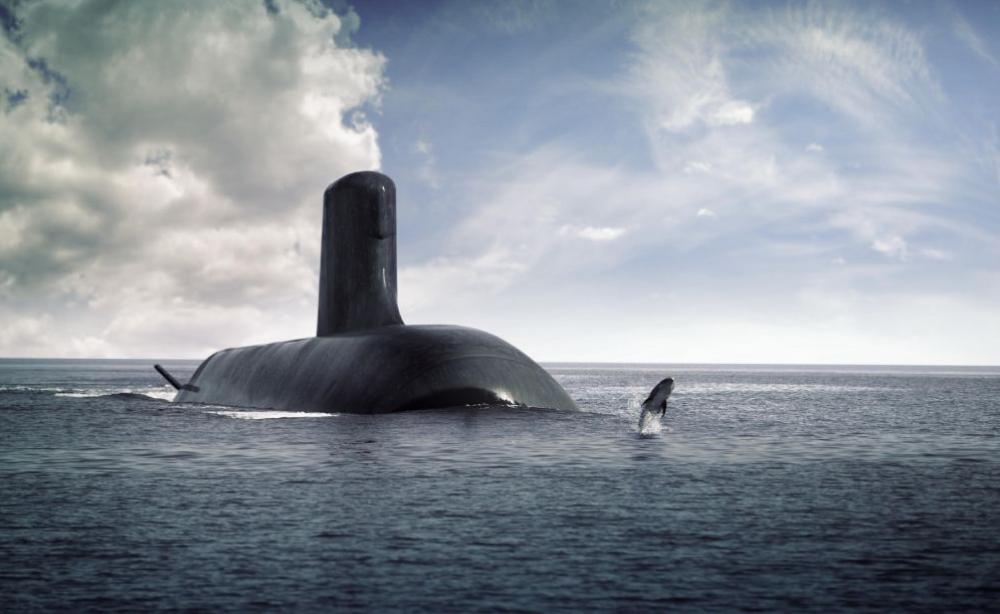How the race for nuclear-powered submarines in the Indo-Pacific is progressing

Australia's choice to opt for a collaboration program with the UK and the US for the construction of 8 nuclear-powered submarines seems to have triggered a sort of "submarine race" by other countries in the region. Giovanni Martinelli's analysis
From the first moment, it was clear to everyone that the announcement of last September 15 on the birth of the trilateral Aukus pact (between Australia, the United Kingdom and the United States) on security would represent a sort of "watershed".
Indeed, that pact has already significantly changed the strategic framework in the entire Indo-Pacific region. Starting from what was his most important passage; that is, the choice by Australia to cancel a contract with France for 12 conventional propulsion submarines, thus opting for a collaboration program with the UK and the USA for the construction of 8 boats but, in this case, nuclear-powered.
This choice thus seems to have triggered a sort of "submarine race" by other countries in the region. With some of these now determined to make projects that have already started to mature faster (even if only at a conceptual level); others still, ready to let them go.
THE CURRENT SITUATION: NUCLEAR PROPULSION SUBMARIES FOR CHINA AND INDIA ONLY
While waiting for the fruits of Australian efforts to materialize, there are only 2 countries in the area that currently have nuclear-powered submarines: China and India.
In particular, the first aligns both ballistic missile boats (with nuclear warheads, therefore part of Beijing's strategic deterrent), and other so-called "attack" boats. The latter are the "objects of desire" by many other Navies, as platforms with high performance and operationally flexible.
On the other hand, the condition of India is different; it too already has the first type of boats but practically does not have the second ones. This element thus joined the novelty represented by Aukus, forcing the political and military authorities to reflect on the priorities for the renewal of their own military instrument. So much so that Indian analysts in the sector are now in agreement in affirming that the project for the construction of a new class of nuclear attack submarines (known as Project 75 Alpha) and already in the gestation phase, will now accelerate; perhaps also opening up to collaborations with other countries (for example, France).
POSSIBLE FUTURE ARRIVALS, PAKISTAN AND (ESPECIALLY) SOUTH KOREA
Naming India means immediately referring to its historical enemy, namely Pakistan. Well, according to information relaunched by Indian sites, even in Islamabad they see AUKUS as a sort of "accelerator" functional to starting such a program; obviously, also pressured by the similar moves of New Delhi. Now, if in reality such a prospect still appears very remote for various reasons, it must not be forgotten that Pakistan can still count on China's help …
On the other hand, the possibilities for South Korea appear much more concrete. Indeed, to understand at what level they are, the news arrives that the issue has even entered the presidential campaign! After all, Seoul has for some time been engaged in a strong strengthening of its Navy; and more particularly, in recent years, there has been a strong focus on the development of the underwater component. And the very hypothesis of acquiring nuclear-powered submarines is certainly not new, given that South Korea has been thinking about it since the early 2000s; especially in contrast to the always dangerous "cousins" of the North, but not only.
Now, if on the one hand both the operational need and the capacity of the local industry can be considered as acquired (even if there would still be a need for the assistance of another country, the USA or even France), on the other hand however, it is clear that there are still obstacles; especially of a "political" nature.
WHAT ABOUT JAPAN?
The situation in this country has numerous points of contact with South Korea; once again, Aukus acted as a "catalyst" for a debate on the subject, even here the defense budgets are as important as the local industrial-technological capabilities (even in the specific nuclear sector) and here too, in the case, it could be count on the help of the USA.
Therefore, even Japan can be considered, to all intents and purposes, a candidate for the acquisition of nuclear-powered boats. More than for South Korea, however, the country's particular "sensitivity" towards certain issues appears to be an even greater obstacle here.
In this sort of equation, however, there is another (very) important factor to be taken into account: the threat posed by China. A threat that in recent times has already forced several countries to make really significant choices in the defense field; and that therefore, if it were to worsen further, it could lead these countries to definitively overcome certain "borders".
This is a machine translation from Italian language of a post published on Start Magazine at the URL https://www.startmag.it/innovazione/come-procede-la-corsa-ai-sottomarini-a-propulsione-nucleare-nellindo-pacifico/ on Sat, 01 Jan 2022 06:55:53 +0000.
